There’s an arms race in Haiti, and it’s fueled by Florida’s pipeline of weapons of war
While heavy gunfire was paralyzing Haiti’s capital in late February, a man using a fake name approached a 45-foot cargo container parked in a Fort Lauderdale lot. He asked if he could drop off three parcels — two boxes and a folding casino table — to ship to the besieged country.
Anestin Predestin, a self-styled broker who was parceling out space in the container for Haitians looking to ship food and merchandise, asked what was inside the taped cardboard boxes. The man, who went by the single name “Diamortino,” lied.
“Clothes,” he said.
The following month, Predestin’s container left Port Everglades and arrived in Cap-Haïtien, a coastal city north of the capital, as fighting raged in Port-au-Prince between police and armed gangs.
In Cap-Haïtien, the national police discovered that Diamortino’s boxes contained more than two dozen illegally imported handguns and assault rifles, along with hundreds of rounds of ammunition — all sent from South Florida and destined for criminal gangs in northern Haiti, according to a Haitian investigator.
Predestin found out about the April 5 seizure over WhatsApp messages. He said he was shocked by the discovery, not only because it involved his shipment, but because it happened as a united front of gangs was attempting to topple the government. The gunmen launched launched deadly coordinated attacks on state institutions, including the capital’s airport, main seaport and prisons.
“Can you imagine?” Predestin, 48, said, sitting a week later in his sparsely furnished efficiency apartment in north Miami-Dade County. “There can be a bad guy in front of you and you don’t even know it.”
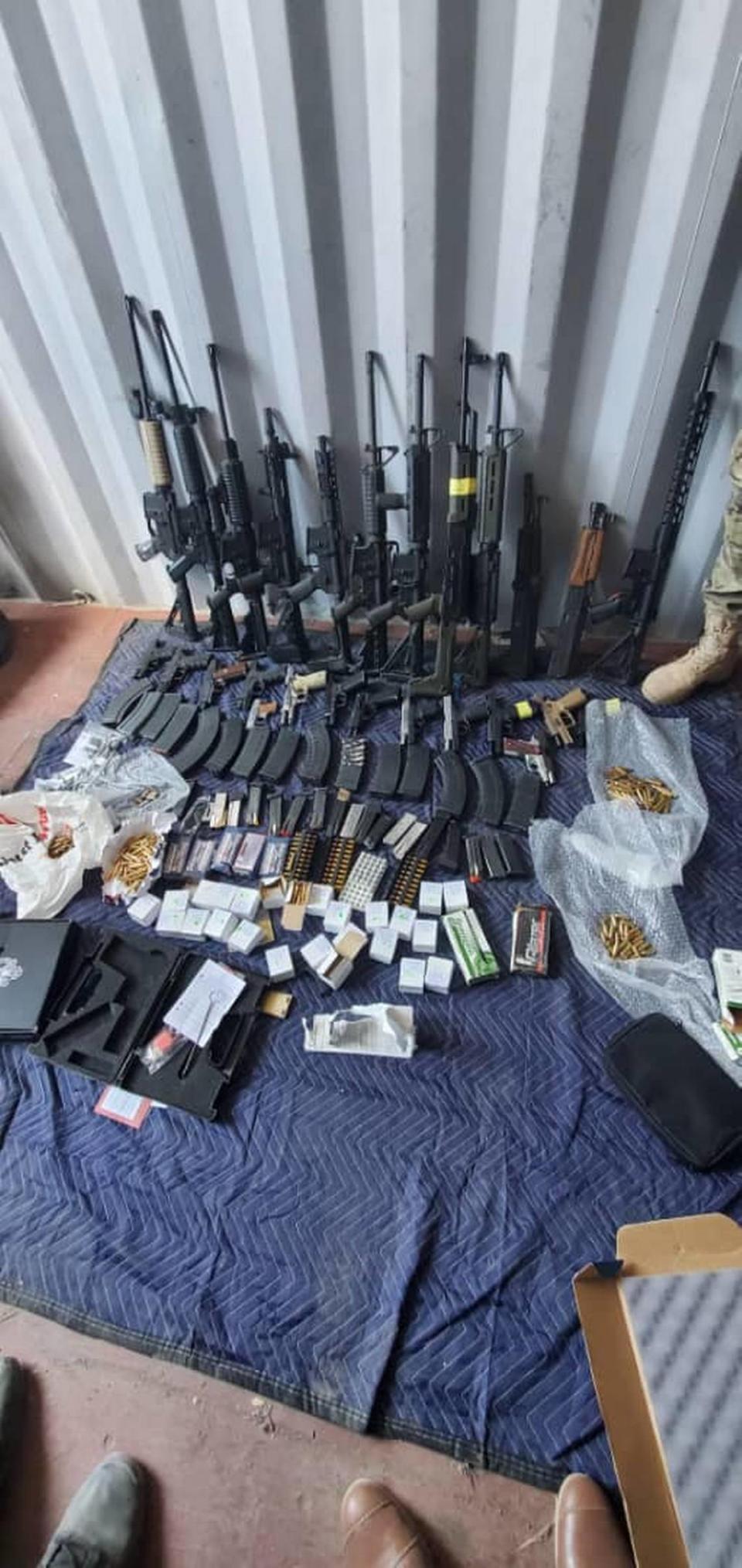
’The choke point’
Federal officials readily admit that Florida is the main U.S. pipeline for weapons headed to the Caribbean and South America, fueled by the state’s easy access to firearms, a lucrative black market, the lack of export inspections at South Florida ports and the rising demands of criminal organizations in countries like Haiti. Those factors have caused a steep climb in illicit shipments of increasingly powerful firearms such as automatic rifles to hundreds of gangs in Haiti, contributing to the doubling of the country’s murder rate over the past two years.
The weapons smuggling spike to Haiti began two years ago, U.S. authorities say, coinciding with the escalation of violence carried out by armed groups since the July 7, 2021, assassination of President Jovenel Moïse. The gangs have forced thousands of people from their homes, paralyzed the economy and now has millions facing starvation. The ongoing insurgency succeeded in ousting the prime minister and shutting down the main airport and seaport for months.
“The choke point for this stuff is here,” said Anthony Salisbury, special agent in charge of Homeland Security Investigations in Miami, noting that .308-caliber sniper and military-grade rifles are being regularly smuggled in shipping containers to Haiti and other Caribbean countries. The old-fashioned practice of stashing one or two handguns in a bulk load or in checked luggage going to Haiti has become increasingly less common.
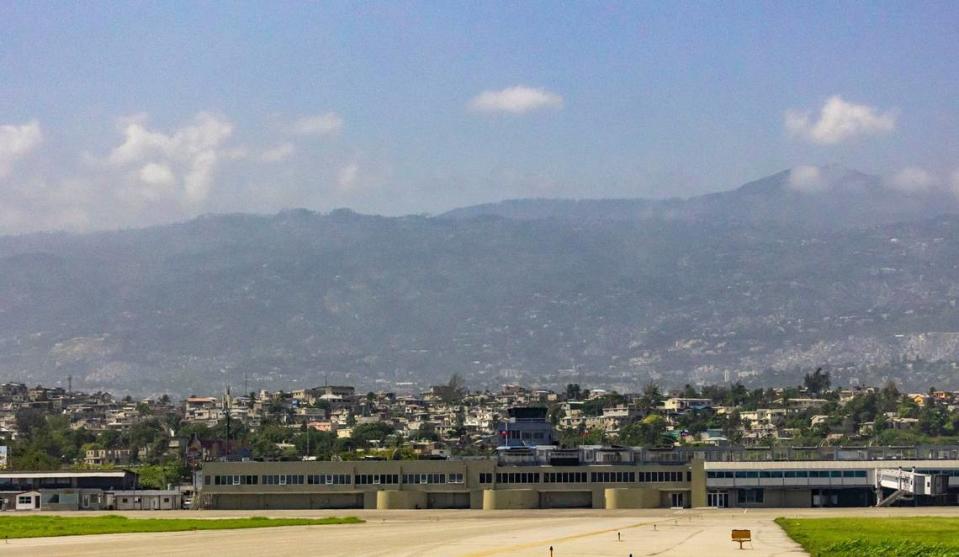
Unlike luggage screened at airports, inspections of shipments exported through South Florida’s ports are “low, obviously,” Salisbury acknowledged, because Customs and Border Protection agents are more focused on imports coming into the U.S. Instead, he said, customs agents rely on tips from informants about firearms and other contraband in export shipments before deciding whether to inspect them.
Salisbury pointed out that, in order to keep much-needed food, medicine and other goods flowing to Haiti — whether they’re packed as containerized cargo leaving major ports or in loose, bulk loads at the Miami River— customs agents can’t afford to check everything. They don’t even require paperwork for export shipments valued at $2,500 or less.
“There’s a whole flow of commerce that we want to make sure is not slowing down,” Salisbury said.
No change in inspections
A spokesman for Customs and Border Protection in Miami declined to address the agency’s specific inspection policy on exports to Haiti, but noted that it hasn’t changed since the escalation of weapons smuggling and the ongoing insurrection by heavily armed gangs.
“CBP’s mission in regards to outbound inspections from South Florida to Haiti has remained steadfast throughout the years,” said agency spokesman Alan Regalado, adding that “local and national policy has not changed.”
Regalado said bulk shipments at the Miami River are the primary source of ocean exports to Haiti. But the Miami Herald has found that since 2022, most of the firearms seizures in the country trace back to container shipments that left Port Everglades in Fort Lauderdale, with the exception of a Miami River cargo load containing 120,000 high-power rounds later confiscated in Haiti.
That reality weighs heavily on the Biden administration, which is leading the effort behind a Kenya-led security mission to help Haitian police take down powerful gangs that now control more than 80% of Port-au-Prince.
“We’re doing more on our end with [key agencies] to figure out how we can detect more of what’s leaving the United States,” said Todd D. Robinson, assistant secretary of state in charge of the Bureau of International Narcotics and Law Enforcement. “And we’re not just doing that for Haiti, we’re doing it for the entire region.’’
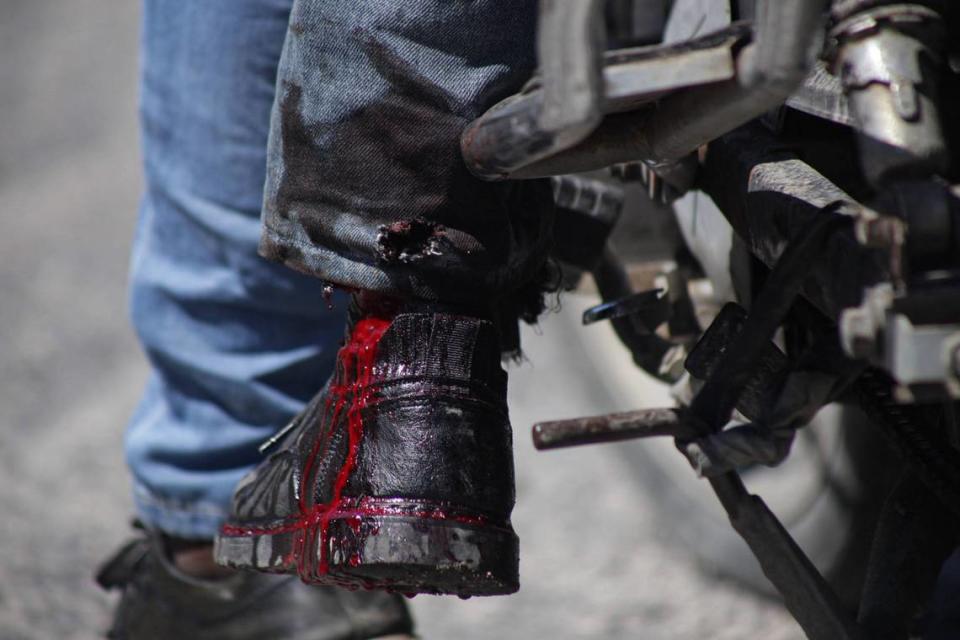
Even with Haiti cut off from the world, with its main international airport and government port shuttered since early March, and its border with the neighboring Dominican Republic sealed, weapons continue to flow in. There has been at least one other seizure in Cap-Haïtien since the April 5 incident — two 9mm pistols and 13 9mm-caliber cartridges were discovered in a blue drum in a container shipped from South Florida on April 29.
Police say some of the gangs involved in the ongoing insurgency have also managed to acquire a fresh batch of assault rifles since late February.
Amid the barrage of heavy gunfire in Port-au-Prince, a powerful 26-year-old gang leader and aspiring rapper, Johnson André, better known as Izo, released a video clip showing masked members of his 5 Segonn gang brandishing new Belgian-made FN FAL battle rifles and AK-47s, weapons that are popular in Venezuela and Colombia. In addition to carrying the new firearms, which until now had not been seen before in the hands of Haitian gangs, the uniformed gang members on the video moved with military-style precision.
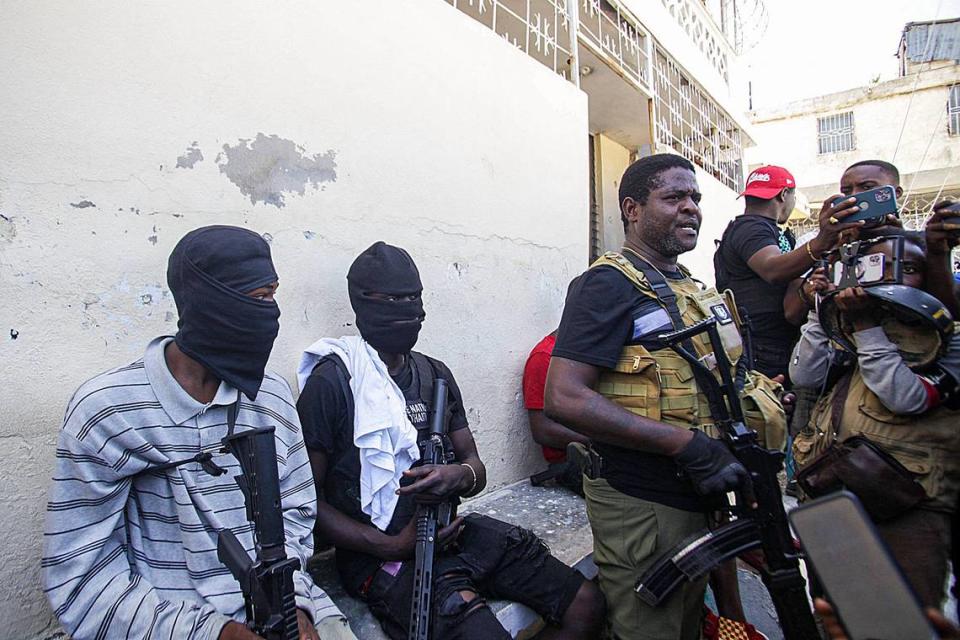
“These are no longer kids running around with flip-flops and guns,” said a security consultant who has been tracking firearms and international funding going into Haiti for years. “This is a terrorist organization. This is an embedded insurgency in the country and it’s going to require military capabilities to dislodge or remove or control them.”
Romain Le Cour, senior expert at the Geneva-based Global Initiative against Transnational Organized Crime, was in Haiti at the start of the gang rebellion in February.
“The general trend is to beef up,” said Le Cour, co-author of Haiti’s Gang Crisis and International Responses. “They’ve been evolving into a trained militia. They look like SWAT teams.”
Christopher Robinson, special agent in charge of the Miami office of the Bureau of Alcohol, Tobacco, Firearms & Explosives, said there has been a “stark” increase in the number of criminals trying to acquire high-powered assault rifles and cartridges.
“More weapons come in [to the Caribbean] from the continental United States,” Robinson said.
The ATF agent declined to name the states linked to gun-involved crimes in Haiti. ATF agents, however, said in a recent report that 57% of the weapons recovered from crimes in the Caribbean between 2017 and 2021 were originally purchased from federally licensed firearms dealers in Florida. According to the National Firearms Commerce and Trafficking Assessment report, Florida, Georgia, Texas, Ohio and North Carolina, accounted for 80% of the guns recovered at crimes in the Caribbean and traced back to licensed U.S. dealers.
The Commerce Department’s Bureau of Industry and Security, which regulates weapons exports from the U.S. to foreign countries, says that since 2020 about half of all firearms-export investigations have been concentrated in the Caribbean region.
Florida weapons pipeline
Thanks to the South Florida pipeline, Haitian gangs have obtained more high-powered semi-automatic rifles like the highly-popular AR-15 using illicit funds from drug trafficking, kidnapping and other crimes. As a result, they have gained a significant edge in their clashes with the Haiti National Police, whose rank and file are carrying handguns like the 9mm Glock, although a few specialized units are armed with Israeli Galil rifles and U.S.-made M-4s.
“You’re looking at an arms race — who can get their hands on the biggest guns and the most guns can do the most talking,” Salisbury said.
The Haitian police force has been so outgunned in violent confrontations with the gangs that the agency recently acquired weapons from the U.S. government, which has had a long-standing arms embargo against Haiti and bars firearms exports to the country.
In 2022, the United Nations Security Council imposed an arms embargo on Haiti in hopes of stemming the flow of weapons and ammunition to gangs. But a U.N. panel of experts recently questioned its effectiveness, noting that armed groups and others continue to illegally get both.
The gangs have managed to develop a network of supply lines stretching beyond the country’s seaports to other entry points and regions of Haiti.
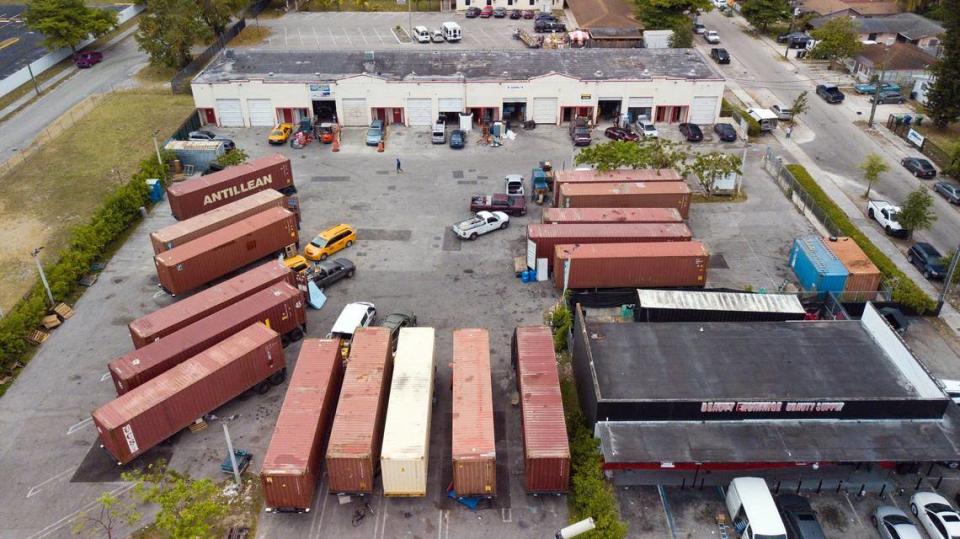
Officials with the U.N. Office on Drugs and Crime have expressed fears gangs are diversifying routes beyond Florida and have begun using routes through the Dominican Republic and Jamaica.
The U.N. agency, which issues quarterly reports, also cited flights of small planes containing weapons flying under radar systems from South Florida to at least 11 makeshift clandestine airstrips in Haiti that also used by South American drug traffickers.
U.N. officials say Colombian drug cartels that use Haiti as a transshipment point for cocaine exports to the U.S. might also be supplying weapons to Haitian gang members, saying that prominent politicians and business operators sanctioned by the U.S., Canada and the Dominican Republic have been involved in the illicit trade.
“While the absolute quantity of drugs arriving in Haiti appears to have declined over the past year, both weapons and narcotics continue to be transported to southern Haiti by air and sea from Colombia, Jamaica and Venezuela,” the U.N. Office on Drugs and Crime says in its latest report.
“It is frequently the case that drug shipments are paired with firearms and ammunition,” the report continued. “After firearms and ammunition arrive on the southern coast of Haiti, they are frequently transported directly to Port-au-Prince, where they are redistributed to armed groups.”
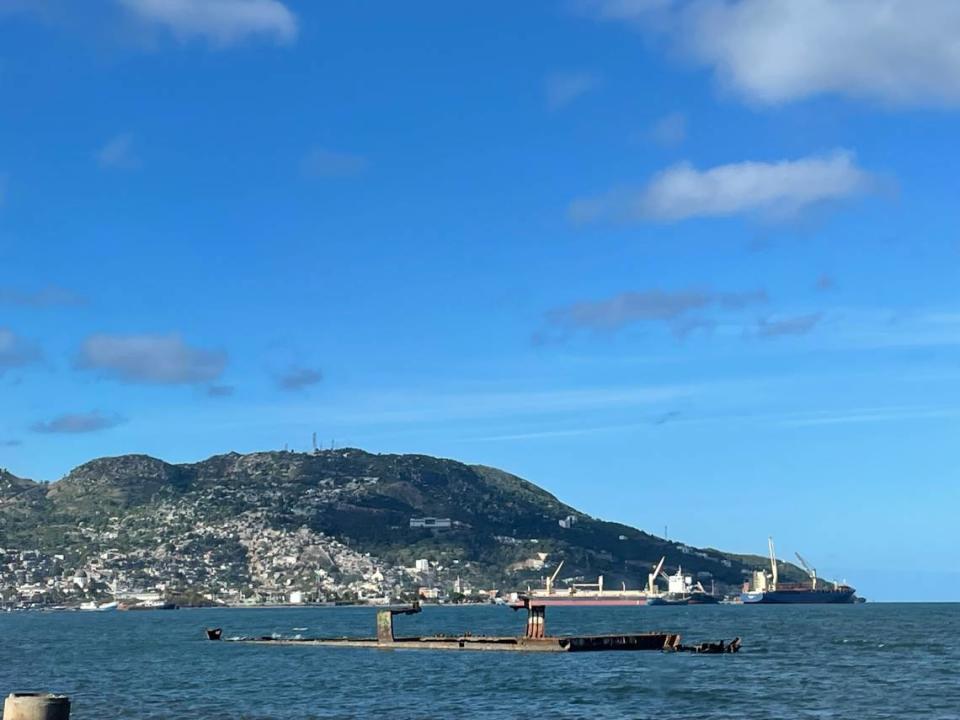
Diplomatic and police sources acknowledge some gangs are now involved in drug trafficking and have foreigners embedded in them. They’re aware of the speculation that drug traffickers may be arming Haitian gangs, and saw the recent warning from Colombian President Gustavo Petro that stolen ammunition from the military may have ended up in Haiti. But despite the speculation, they do not have any evidence yet of this.
U.S. authorities in South Florida said they’ve also seen no proof to back up the speculation.
The U.N. Office on Drugs and Crime found that Haitian gangs are using automatic and semi-automatic rifles as well as higher-caliber weapons, including the M60 machine gun.
“The gang attacks targeting key infrastructure were another reminder that the fire power available to gangs in Haiti has increased significantly,” Ghada Fathi Waly, head of the U.N. Office on Drugs and Crime, told the U.N. Security Council on April 22.
Waly cited a U.S. criminal case in which the leader of the 400 Mawozo gang, Germine Joly was convicted earlier this year of running a weapons-smuggling operation from his cell in a Haitian prison.
Using his cell phone, Joly ordered the transfer of funds from kidnapping ransoms of U.S. citizens to criminal associates in Florida, “straw buyers” who were instructed to use the money to purchase high-caliber weapons from federally licensed firearms shops. They then smuggled the weapons, along with ammunition capable of piercing police cars, in boxes and barrels stacked with used clothing, Gatorade and other goods.
Predestin’s shipment seized
Predestin ordered his cargo container on Feb. 22 from Alliance International Shipping in Doral. The company then transported it for him to the parking lot in Fort Lauderdale.
Seven days later, Predestin, 48, charged the man who went by the name Diamortino $150 for his shipment of two cardboard boxes and the casino table, wrote the number 75 on the packages, and stacked them inside the container. The transaction happened on the same day that armed groups in the Haitian capital began attacking police stations, looting the seaport and targeting the airport.
On March 25, Diamortino’s boxes and table were among hundreds of packages of food and other merchandise transported on a King Ocean Services cargo ship that arrived in Cap-Haïtien two days later.
On April 5, as customs inspectors and anti-drug police began clearing the cargo at the port, a customs supervisor tried to elude the inspection by asking for Diamortino’s merchandise.
The Haitian customs inspectors and eight anti-drug trafficking cops ended up finding one box with weapons inside the container. The other box with firearms was sitting in a vehicle belonging to customs supervisor Jean Bernard Joseph, who was arrested a week later in connection with the weapons-smuggling operation.
The boxes contained 12 automatic rifles, 14 pistols and 999 cartridges. Among the U.S.-made brands: Palmetto, Taurus and Smith & Wesson. The firearms had been disassembled and shipped in parts, according to a Haitian police investigator.
Two other weapons-smuggling suspects are at large in Haiti: Rod Junior Barthold, the designated recipient of the firearms delivery, and Wilmane Jean, a customs broker, who was supposed to clear the shipment. Both men disappeared before police could make an arrest. A police source says they are part of a criminal network that intended to sell the guns to a gang in the Artibonite Valley.
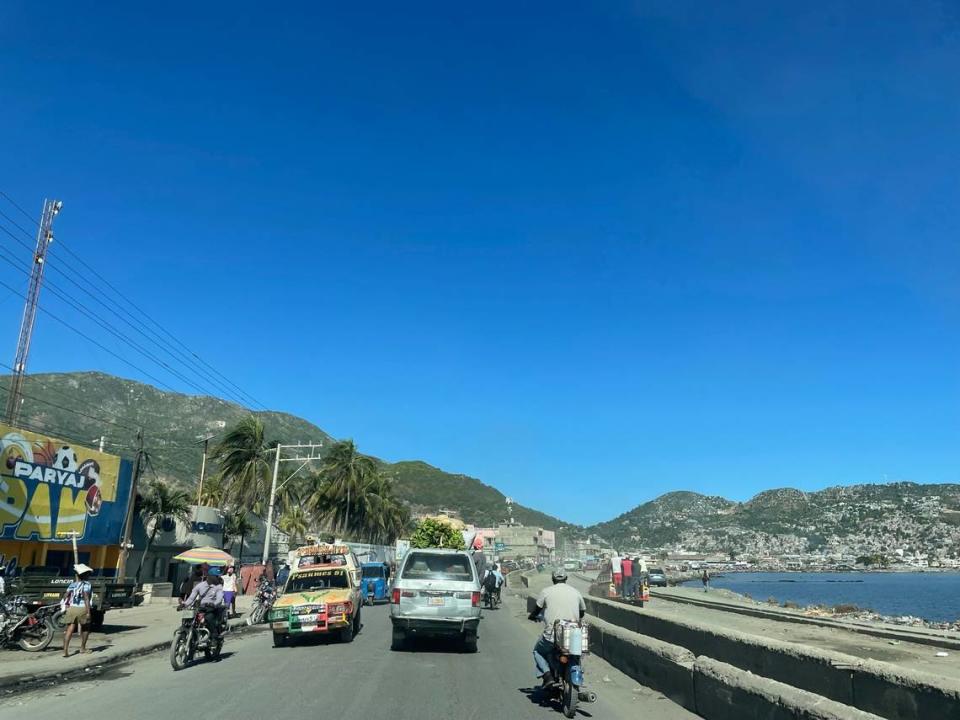
Haitian police say they believe all three suspects collaborated with the man who shipped the boxes through Predestin. Other suspects believed to be involved fled to South Florida, according to the Haiti national police. Meanwhile, since the April 5 firearms seizure, police have stepped up enforcement in Cap-Haïtien.
“These people are evil, really evil. They are not human beings,” said a police investigator on the front line of Haiti’s arms war. “Once people want to make money, they don’t consider the impact this is going to have, how many people can die because of these guns. And these aren’t just any weapons. They are weapons of war.”
Predestin said he has been leasing containers and renting out space to Haiti’s small traders, and Haitian Americans to send personal belongings, food and other necessities to their families in the country since 2008. He said this was the first time there was an illegal weapons shipment hidden in one of his containers.
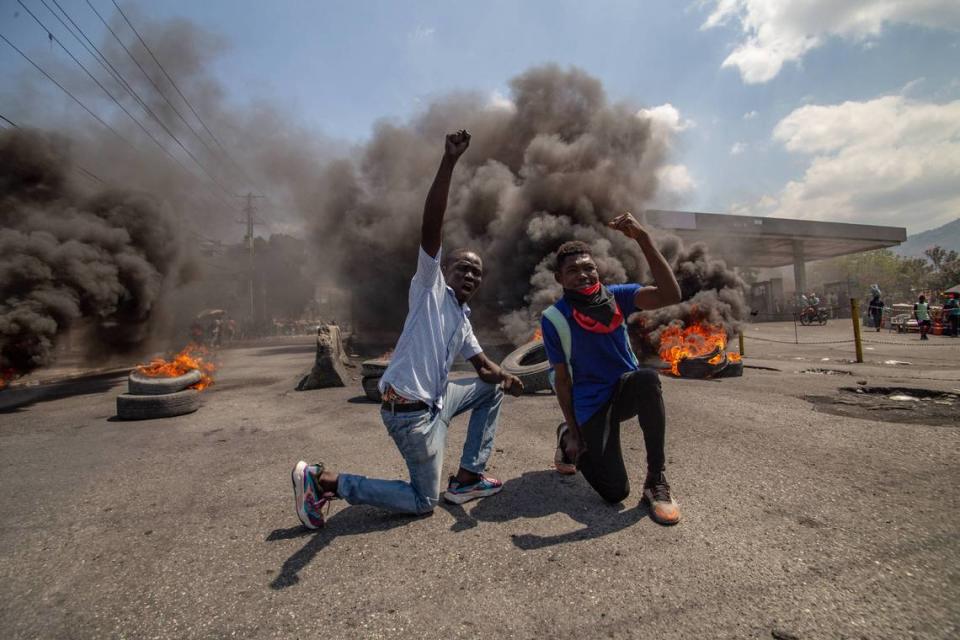
Predestin acknowledged the business of shipping containers is risky because there’s no way of knowing what customers might put inside their boxes bound for Haiti. He goes by what they tell him, he says, because it would be impractical to check every box to verify the contents.
“It’s high risk and you take it,” he said. “It could happen to anyone.”
Now, Predestin said he’s afraid it’s going to cost him a small fortune to get his container back from Haiti investigators because it’s considered a crime scene. Another problem: All of his customers’ legitimate shipments are still stuck in police custody.
The Doral company that leased Predestin the cargo container is a dominant player in the business of shipping goods to Haiti.
Gregory Moraille, president of Alliance International Shipping, said his company handles 52% of all container shipments from South Florida to Haiti. But he said he had no idea what was in Predestin’s container because his company was responsible only for leasing it and arranging for its shipment to Haiti.
Moraille acknowledged this was not the first time his company has had to deal with weapons being smuggled in containers. He said Customs and Border Protection should inspect more shipments being exported to Haiti.
“We have to do more at this end to inspect the shipments,” he said.
His company’s cargo containers were involved in another weapons seizure in Haiti, though Moraille said he had no clue about the contents in that shipment either. In mid-July 2022 Haitian customs seized 17 semi-automatic weapons, 12 shotguns and four pistols from containers addressed to the Episcopal Church and sent by a Florida-based company, Rémy Multi Services, through Port Everglades. An assortment of ammunition and $50,000 in counterfeit bills were also discovered.
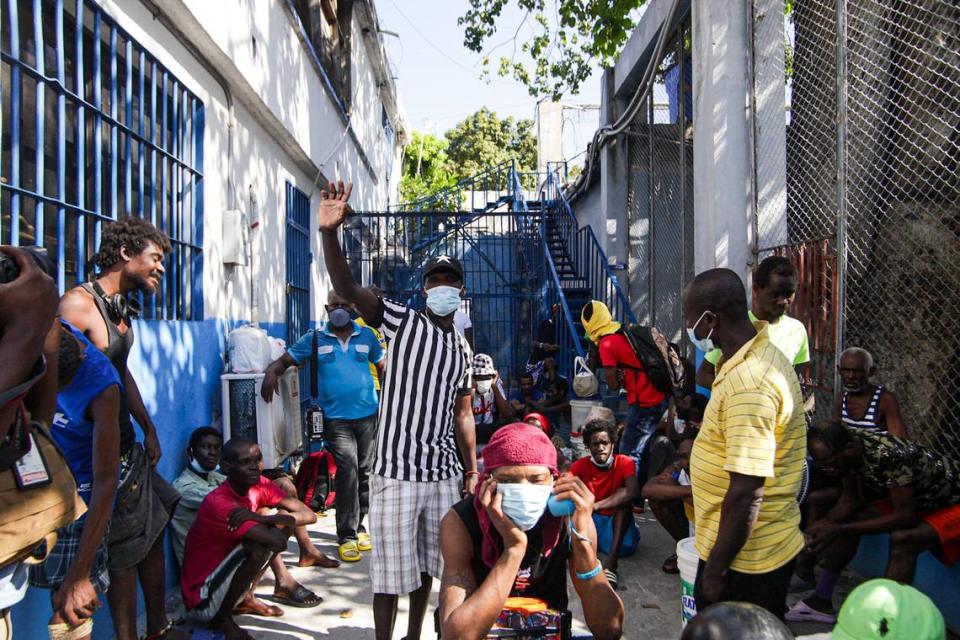
Haitian authorities ordered the arrest of the church’s president, Father Jean Madoché Vil, on suspicion of arms and ammunition trafficking.
Experts on weapons smuggling say there’s no dispute that the U.S., and in particular Florida, are the main source of weapons being smuggled into the Caribbean and Haiti.
“We know in the cases that are brought for prosecution [in the U.S.] a lot of the weapons are obtained from federally licensed firearms dealers and acquired by straw buyers,” said Matt Schroeder, senior researcher at Small Arms Survey, an independent research group based in Geneva, Switzerland.
Schroeder said given how the weapons are transported — with innocuous commodities and hidden inside boxes — those doing the trafficking are not very sophisticated.
“The people who are getting caught are amateurs,” he said. “It’s very simple, but because of the volume of trade that exists at U.S. ports, it’s very difficult to stop.”
Reginald Delva, a Haitian security consultant, said if Haiti hopes to make a dent in arms trafficking there needs to be greater collaboration from U.S. authorities, who recently signed an agreement with Haiti for the use of the web-based application eTrace to help track the source of weapons.
Said Delva: “I don’t see where they are working together.”

